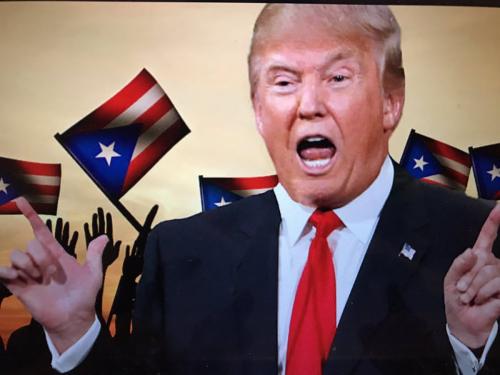The myth of sovereignty
- Opinión

Donald Trump spent much of his speech to the United Nations asserting that he was elected to defend U.S. sovereignty. He said that every other member state was also seeking to defend its sovereignty. What did he mean by this?
There is probably no other word in the public vocabulary of both political leaders and scholarly analysts that have as many conflicting meanings and usages as "sovereignty." The only other one that comes close in confusion is "liberalism." It is therefore useful to trace a little of the history of the term.
One doesn't find the term used before the creation of the modern world-system in the long sixteenth century. This was the time when heads of certain states (notably England, France, and Spain) proclaimed the doctrine of absolute monarchies. They insisted that the monarch was "absolved" of challenge by any person or institution. This was of course a claim, not a description of reality.
What these monarchs were trying to establish was the sovereignty of their states. Sovereignty for them meant that no power outside their state had the right to interfere in their state's decisions. It also meant that no power within the state could fail to carry out the decisions of the state. The double orientation (external and internal) was crucial to the concept.
Simply asserting sovereignty was obviously not enough. The state had to implement these claims. No state was then or has ever been fully sovereign, not even the most powerful. But stronger states did and do better than less powerful ones.
When we call some states hegemonic in the modern world-system, we mean in reality that they can indeed interfere in the internal affairs of other states. And they can indeed maintain internal unity. They do not face significant institutional resistances, much less secessionist movements.
The United States was a hegemonic power more or less between 1945 and 1970. It got its way in the world-system 95% of the time on 95% of the issues. Another term to describe this is to say the United States was "imperialist." Imperialism is a negative term and a hegemonic power can succeed in largely banning its use.
As hegemony declines, imperialism as a term comes into larger use. So does sovereignty. Less powerful countries assert their rights as sovereign powers to fight against imperial powers. So Trump was right in the sense that many, perhaps most, of the members of the United Nations today defend publicly their sovereignty.
When Trump asserts U.S. sovereignty, it is a sign of weakness. It is precisely because the U.S. is a hegemon in acute decline that he has to resort to using the myth of sovereignty and rejecting the idea that supra-national institutions can have any say in U.S. policies. When a Baltic state asserts its sovereignty, it is demanding support against what it sees as Russia's reassertion of its authority. And when China asserts its sovereignty, it is seeking to expand its decision-making power into new areas.
Secessionist movements force us all to confront our usage. Catalonia is holding a referendum on its right to sovereign independence. Spain says that such a referendum violates Spanish sovereignty. In the situation of directly opposed claims, everyone has to decide which claim is more legitimate. Sometimes this can be settled without violence. This was the case, for example, when Slovakia seceded from Czechoslovakia. And sometimes there is civil war. But since no secession ever eliminates all subcategory differences within a state, the right to secession must stop somewhere.
The point I am trying to make is that sovereignty is a myth, one that we all can use, and one that has very different consequences in different moments of the world-system. Our moral judgment depends on the totality of consequences and not on the myth of sovereignty. When Trump uses the term, it has reactionary implications. When others use it, it may have progressive implications. The term itself tells us nothing.
- Immanuel Wallerstein, Senior Research Scholar at Yale University, is the author of The Decline of American Power: The U.S. in a Chaotic World (New Press).
Copyright ©2017 Immanuel Wallerstein -- used by permission of Agence Global rights @ agenceglobal.com
Del mismo autor
- Retirer les troupes ? Les choix impossibles 09/05/2019
- A luta de classes em tempos de crise estrutural 22/02/2019
- How to fight a class struggle 19/02/2019
- The Big Five: Clinging to power 04/02/2019
- Withdrawing troops: The impossible choices 21/01/2019
- The Desperate mr. trump, or Trump says he matters 07/01/2019
- The November 6th U.S. elections: catastrophe or salvation? 05/11/2018
- Human rights, anyone? 19/10/2018
- Les paris risqués de Trump dans l’arène mondiale 20/09/2018
- Trump’s risky bets in the world arena 20/09/2018
